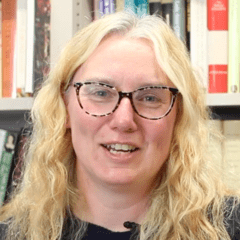You are not currently logged in. Please create an account or log in to view the full course.
Mary, Elizabeth and the Significance of Gender
- About
- Transcript
- Cite
The Tudors – Politics and Religion, 1509-1603
In this course, Dr Natalie Mears (Durham University) explores political culture and religion in Tudor England through six key questions: (1) How significant was the gender of the monarch during the reigns of Mary and Elizabeth?; (2) How far do you agree that the main turning point in the fortunes of Protestantism in England in the years 1529–88 was the Elizabethan compromise?; (3) To what extent did the role of parliament change in the years 1558-88, during the reign of Elizabeth I?; (4) Was the influence of Henry VIII’s ministers the main reason the English Church was reformed in the years 1529-40?; (5) Wolsey and Cromwell were Henry VIII’s chief ministers in the years 1514-40. To what extent did royal power grow in the years 1514-40?; and (6) To what extent did the structure of government change in the years 1509-88?
Mary, Elizabeth and the Significance of Gender
In this module, we consider the question, ‘How significant was the gender of the monarch during the reigns of Mary and Elizabeth?’, focusing in particular on: (i) the historiography: the relative amount of attention historians have paid to each queen, and the reasons for this difference; (ii) the question of whether gender was the defining feature of the reigns of Mary and Elizabeth (pace Heisch, Crane, Cole and McLaren) or their religious beliefs (pace Collinson, Guy, Alford and Mears); (iii) the preponderance of queens and powerful royal women in the mid- to late 16th century, including: Mary and Elizabeth in England; Mary, Queen of Scots and Mary of Guise in Scotland; and Catherine de’ Medici in France; (iv) theories of queenship in the mid-16th century, including the works of the Scottish theologian, John Knox (1514-72), and the English bishop John Aylmer (1521-94); (v) the practical issues associated with a queen regnant, especially the issues of marriage and the succession; (vi) Mary and Elizabeth’s own awareness of the limitations (or otherwise) imposed by their gender, including Mary’s speech at Guildhall in 1554 and Elizabeth’s letter to the Earl of Shrewsbury relating to Mary, Queen of Scots in 1569; (vii) what Mary and Elizabeth’s councillors thought about the gender of the monarch and how it impacted her authority; (viii) the way that Mary and Elizabeth governed in practice, and the extent to which this was hindered (or advanced) by the monarch’s gender; and (ix) the extent to which Mary and Elizabeth’s (male) councillors could impose their will on the monarch.
Cite this Lecture
APA style
Mears, N. (2020, May 16). The Tudors – Politics and Religion, 1509-1603 - Mary, Elizabeth and the Significance of Gender [Video]. MASSOLIT. https://massolit.io/courses/the-tudors-politics-and-religion-1509-1603/wolsey-cromwell-and-the-growth-of-royal-power-1514-40
MLA style
Mears, N. "The Tudors – Politics and Religion, 1509-1603 – Mary, Elizabeth and the Significance of Gender." MASSOLIT, uploaded by MASSOLIT, 16 May 2020, https://massolit.io/courses/the-tudors-politics-and-religion-1509-1603/wolsey-cromwell-and-the-growth-of-royal-power-1514-40

